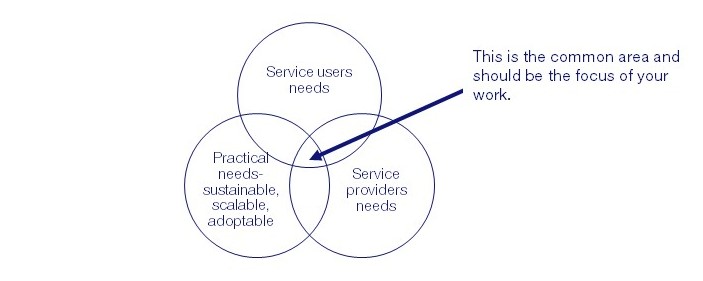Hear about how Dr Louise Goff, from HEAL-D, co-designs in practice.
Written by Rachel Abbott | 13th of June | Reading time: 5 minutes
Last month, we were delighted to be joined by Dr Louise Goff from HEAL-D (Healthy Eating and Active Lifestyles for Diabetes) for our second online Speaker Session. Louise has spent the last 10 years of her career working with local African-Caribbean communities, focusing on improving access to self-management support for type 2 diabetes. This has been achieved by taking the current evidence-based nutrition and lifestyle guidelines, NICE guidelines and quality standards for structured education programmes and understanding how they could be delivered in a culturally relevant way for African and Caribbean individuals. Every step of the way, Louise involved other stakeholders in the process, and she kindly shared with us her learnings and experiences in designing the HEAL-D programme, providing us with a great example of co-developing health innovation in practice.
The design process in practice
Before initial design:
HEAL-D is a diabetes education and support programme specifically for adults of African and Caribbean heritage, so including these communities in the design process was crucial to ensure the programme would meet the required need. As such, before the initial design of the programme, they spent a few months carrying out:
- interviews with community leaders - key stakeholders due to their ability to aid community engagement and advocate for the service
- focus groups with patients to discover their barriers and motivations.
- interviews with healthcare professionals to help identify challenges in the care provision.
Refining stage:
An initial programme design was created using the insights from the focus groups and interviews. The proposed design was then refined using stakeholder workshops that included patients, researchers, and healthcare professionals. Unlike the interviews and the focus groups, where the patients, healthcare professionals and community leaders were kept separate, the workshops brought everyone together for a truly collaborative environment. These workshops had three main objectives:
- To validate understanding of the qualitative data and ensure that there were no misinterpretations.
- To design, refine and test the educational and support materials.
- To decide how the programme will be delivered.
Feasibility trial:
The series of workshops enabled Louise and her colleagues to come up with their final programme design and content for their educational materials. A pilot was then carried out and acceptability was evaluated by both patients and healthcare professionals.
As you can see from all the above points, Louise and HEAL-D invested months talking to and listening to service providers and service receivers. This process required a lot of time and effort but allowed the team to pick up on practical barriers to attendance, gain insights on what would be useful, and further solidify the importance of having culturally specific information.
Lessons learned
- Question everything. Assume nothing. Learn the truth.
- Be ready to challenge the status quo.
- Know the red lines/no-go areas.
- Think about the sustainability of your work, consider how it will be adopted and implemented.
- Involve the stakeholders that will help implement your work in your design process.
- Different stakeholders will have differing priorities. To design an intervention that’s acceptable to all of them, you need to find the common ground (area of overlap in the Venn diagram below).

What happens next in the Lab?
Next time, we’ll be hosting another Speaker session, hearing from 2 of our Diabetes UK colleagues, Jamie Bedford-Low and Farhana Darwich, as they share their knowledge on community involvement and engagement.
If there’s anything you’d like to find out more about, or if you’d just like to share some comments, please send us an email at changelabs@diabetes.org.uk
